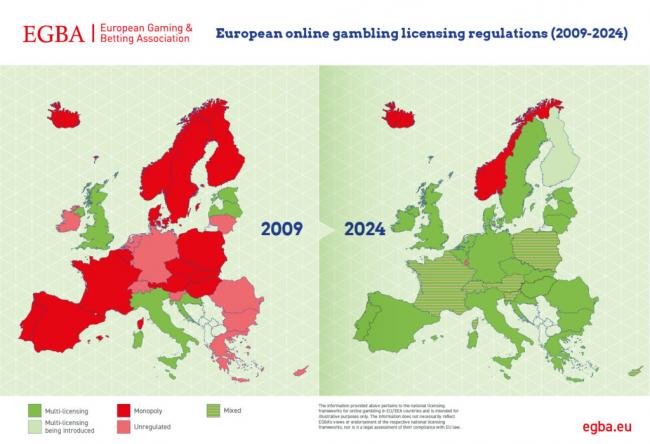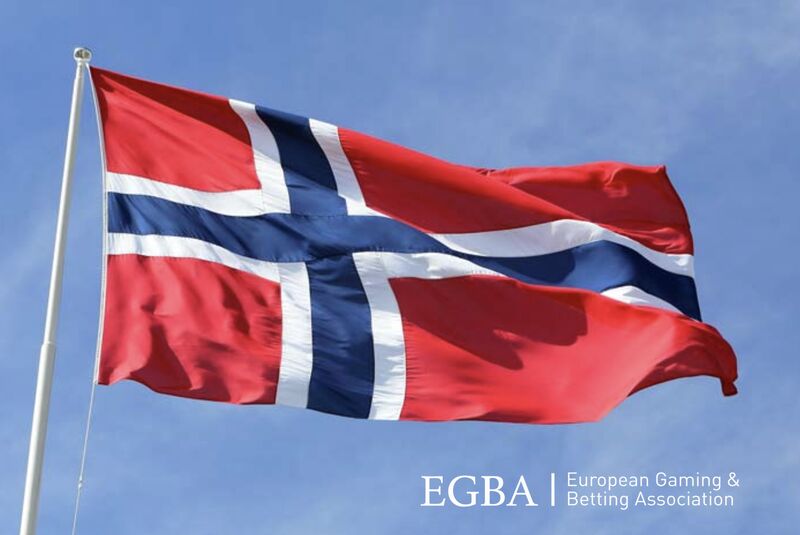The European Gaming and Betting Association (EGBA) has released an in-depth analysis on the regulation of online gambling in Norway, highlighting a pivotal moment for the country in its regulatory framework. While the state monopoly system was initially intended to protect consumers, Norway has not kept pace with its European and Nordic counterparts, whose alternative regulatory approaches are yielding better results in both consumer protection and economic benefits.
The EGBA report indicates that approximately half of Norway’s online gambling has already shifted to international sites. This underscores the need for Norway to adopt an alternative approach to gambling regulation that maintains core consumer safety principles but is better suited to the current global market realities.
Recent events have shown that even well-intentioned state monopolies face challenges in the online environment. The Norwegian gambling authority recently fined Norsk Tipping up to 36 million NOK (approximately 3 million euros) for consumer protection failures. This illustrates that a state monopoly does not inherently guarantee superior consumer protection compared to well-regulated private companies.
The primary challenge of the monopoly system is that it inherently limits the options available to gamblers. In the online world, Norwegian players are voting with their clicks, migrating to international websites that offer more competitive betting odds, richer experiences, and diverse betting options. However, in doing so, they lose the legal protections and safety measures guaranteed under Norwegian law.
Fortunately, Norway’s neighbors, such as Denmark and Sweden, have already charted a more promising path to address these challenges by transitioning from state gambling monopolies to multi-licensing systems that offer more consumer choice because they allow multiple operators to offer online gambling while ensuring all operators follow the same strict rules.
Their approach was not about encouraging more gambling but rather bringing offshore gambling activity into a carefully regulated framework. The result in Denmark was a dramatic reduction in gambling on international websites, leading to increased tax revenue and better protection for players. Sweden experienced similar benefits, and Norway could do the same.
Multi-licensing offers a pragmatic solution by acknowledging that many Norwegians seek alternatives to Norsk Tipping and already gamble on international sites. It’s not about expanding gambling, but rather establishing proper oversight for the gambling that Norwegians are already engaging in.
This approach wouldn’t threaten Norsk Tipping’s operations or its valuable social contributions. As Denmark and Sweden have shown, former monopoly companies can not only survive but thrive under a multi-licensing framework for online gambling. And offline, Norsk Tipping’s land-based gambling monopoly can remain unchanged, while the online gambling market opens to competition.
Contrary to potential concerns, experiences in Denmark and Sweden show no substantial increases in problem gambling following multi-licensing. Instead, multi-licensing strengthened consumer protection in both countries by bringing international operators under local regulatory oversight and mandating all market operators – not just the former state monopoly company – to implement strict safety measures, including national self-exclusion schemes to protect vulnerable gamblers. Norway could do the same.
As Finland – the last comprehensive gambling monopoly in the EU – is already in the process of moving towards multi-licensing, Norway risks becoming the only country in Europe clinging to an outdated system without any clear public policy justification. Norway’s path forward should be clear to all concerned. Multi-licensing does not abandon the principles of consumer protection but adapts them to the realities of the digital age we live in.
The Norwegian Parliament has the opportunity to conduct a comprehensive review of the current gambling framework and develop a modern licensing system that maintains the highest standards of consumer protection and enhances regulatory oversight.
By learning from other successful Nordic models, Norway can transform its gambling landscape and align with modern European regulatory best practices.
This isn’t about dismantling the current regulatory system, but rather evolving it toward a proven model. A modernized multi-licensing system for online gambling delivers what matters most—better protection for consumers and greater economic benefits for Norwegian society.
18+ | Juegoseguro.es – Jugarbien.es




